QUICK REFINANCE SINCE 2011




134,503 People Already Got a Great Deal
🔒 SSL Encrypted Form 🔒
WHY WE'RE YOUR BEST OPTION?
You’ll get a totally online application system with minimal paperwork, and you can monitor the status of your home loan application.
Once you close your loan, you can be in charge of your mortgage online with no hidden charges. Forever.

Our Mortgage Specialists are accessible to respond to your inquiries and assist you with understanding the subtleties so you get the correct home loan for you.
We maintain 99% of our home loans, which implies you can expect our outstanding customer service to remain after you close.
3 Benefits of Refinance
The initial phase in determining whether you should renegotiate is to organize your objectives. The most widely recognized explanations behind refinancing a mortgage are to get cash out, get an affordable payment plan or reduce your mortgage term.
1. Get Cash Out
Refinancing your home loan is an incredible method to utilize the equity you have in your home. When you take a cash-out, you refinance for a larger amount of loan than what you ought to and get the difference. Also, any returns you gain are tax-free.
A lot of homeowners utilize cash from their home to take care of big-interest student loan debt and credit card debt. You can likewise get cash out to fund whatever you need such as home remodeling projects. Since interest fees of a mortgage are usually lower than interest fees on other credits, a cash-out refinance can be an incredible method to pay out debt. While interest on other debts isn’t tax-deductible, mortgage interest is.
In the event that you’ve been paying on the mortgage long enough to expand value , you might have the option to get cash from your home. Moreover, you might have the option to do a cash-out refinance if the value of your property has increased.
2. Get an Affordable Payment Plan
A reduction in mortgage payment implies more space in your financial plan for different things. There are a couple of ways you can bring down your payment through refinancing.
You might have the option to refinance with an affordable rate. Provided that current rates are lower than they were at the point at which you purchased your house, it merits consulting your lender to determine what your interest rate could be. Having a lower rate implies bringing down the interest segment of your monthly scheduled payment – and huge interest savings in the long term.
Next, you could refinance to be relieved of mortgage insurance – a month to month charge you pay to secure your lender if you default on the credit. Mortgage insurance is possibly required when you put down under 20%.
Moreover, you can get an affordable payment by modifying your mortgage term. Extending your term loosens up your payments over more years, which makes every payment more modest.
There might be alternate ways to get an affordable payment, so it’s important to talk with your lender to understand how they can assist you with getting a payment plan that accommodates your present financial plan.
3. Reduce Your Mortgage Term
Reducing your mortgage term is an extraordinary method to get a good deal on interest. Frequently, shortening your term implies you’ll get an improved interest fee and less long periods of payments that can save you from a big interest in the long term.
So how does this function? Say your credit sum is $200,000. On the off chance that you got a 30-year loan marked with an interest rate of 3.5, you would pay roughly $123,000 in interest throughout the course of the loan. But if you slash your term in half, you would pay about $57,000 in interest throughout the course of the loan. That would give you a huge gap of $66,000 – and it doesn’t represent the way that the reduced term would furnish you with a lower interest rate and big savings.
Note that reducing your mortgage term might increase your month to month payment. But, more of your payment will go toward settling your loan balance and less of it will go toward paying down your interest. This enables you to develop value and pay off your home quicker.
There are four factors to consider
Your credit score, your monthly loan payment, your property value and your debt-to-income ratio (DTI).
Factors You Need to Assess Before Refinancing
When you have a reasonable objective as a main priority, you’ll need to assess your monetary circumstance. There are four factors to consider: your credit score, your monthly loan payment, your property value and your debt-to-income ratio (DTI).
Your Credit Score
To check your credit score (for free), you can do your research via the internet. Realizing your credit score will assist you with understanding what home loan refinance alternatives you could be qualified for.
Your Monthly Loan Payment
Knowing how your month to month loan payment finds a way into your spending will assist you with assessing your choices. In case you’re taking money out or shortening your term, for example, it’s a smart thought to realize how much wiggle room you have in your financial plan for a higher monthly payment. If you aim for a lower monthly payment, it’s critical to choose the amount you need to bring down your payment for the refinance to be beneficial.
Your Property Value
It is important to do your research to appraise how much your home is worth prior to refinancing. Note that your lender can’t loan you more than the worth of your property so an appraisal value that returns lower than anticipated can affect your capacity to refinance – particularly in case you’re hoping to take cash out or eliminate mortgage insurance.
The most ideal approach to evaluate your property value is to check the sale costs of comparative homes close to you. The more current the sale, the better.
Finding out the worth of your home can reveal to you how much equity you have. To sort this out, simply deduct your present mortgage balance from the assessed worth of your home.
Your Debt-to-Income Ratio
Another thing to think about is your DTI. DTI is all your month-to-month debt installments divided by your gross month-to-month pay. DTI is utilized by lenders to measure your capacity to reimburse the cash you’re getting.
In the event that you were paying $1,000 per month for your home loan and another $500 for the remainder of your obligations, (for example, credit card debt, student and car loans), your month-to-month obligations would approach $1,500. Assuming your gross month to month pay was $4,500, your DTI ratio would be 33%.
Most lenders obligate a DTI of half or lower, and the greatest DTI differs by the kind of loan you get. A DTI that is too high could affect your capacity to refinance or restrict your refinance alternatives.

